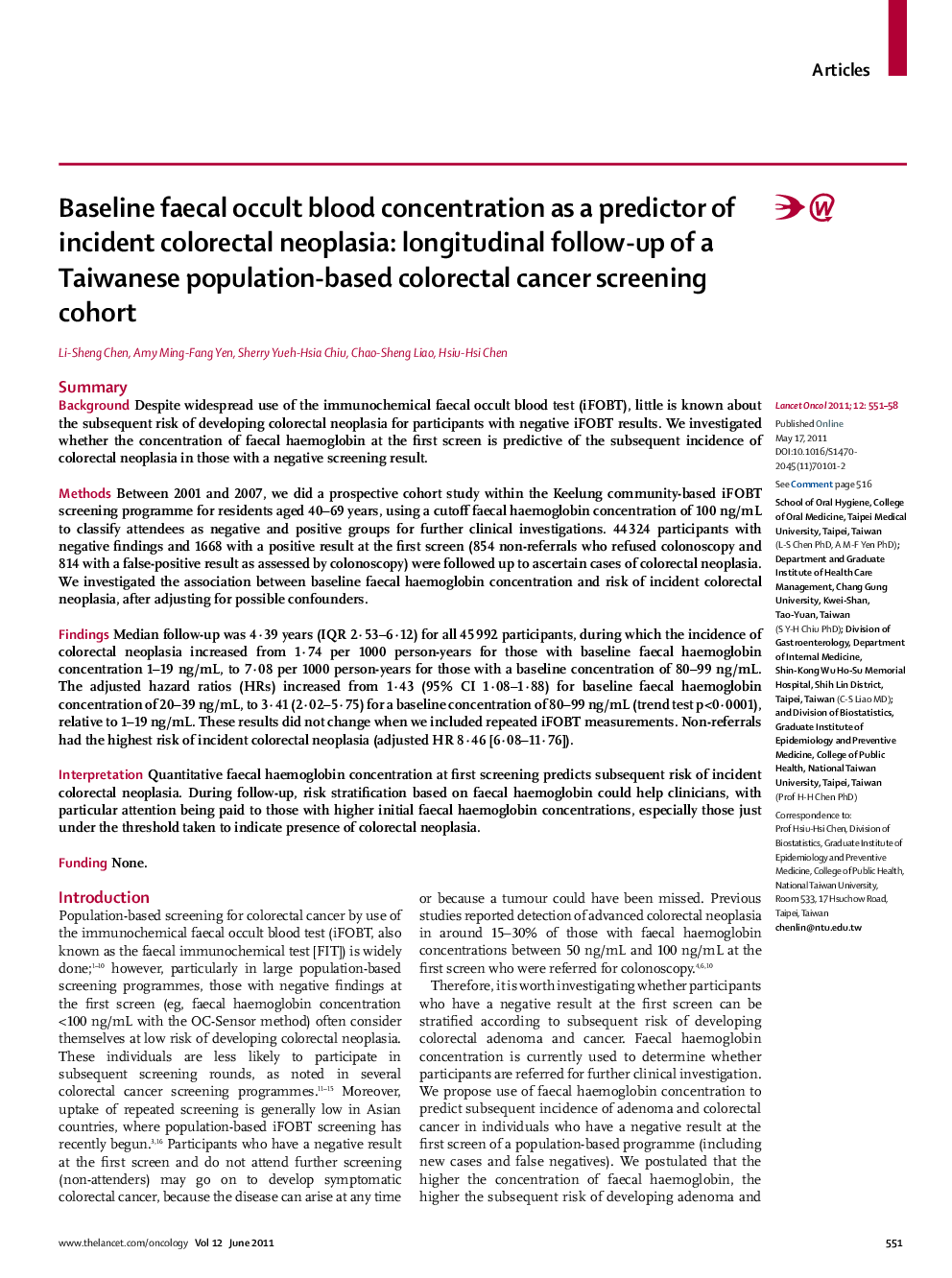| Article ID | Journal | Published Year | Pages | File Type |
|---|---|---|---|---|
| 3994454 | The Lancet Oncology | 2011 | 8 Pages |
SummaryBackgroundDespite widespread use of the immunochemical faecal occult blood test (iFOBT), little is known about the subsequent risk of developing colorectal neoplasia for participants with negative iFOBT results. We investigated whether the concentration of faecal haemoglobin at the first screen is predictive of the subsequent incidence of colorectal neoplasia in those with a negative screening result.MethodsBetween 2001 and 2007, we did a prospective cohort study within the Keelung community-based iFOBT screening programme for residents aged 40–69 years, using a cutoff faecal haemoglobin concentration of 100 ng/mL to classify attendees as negative and positive groups for further clinical investigations. 44 324 participants with negative findings and 1668 with a positive result at the first screen (854 non-referrals who refused colonoscopy and 814 with a false-positive result as assessed by colonoscopy) were followed up to ascertain cases of colorectal neoplasia. We investigated the association between baseline faecal haemoglobin concentration and risk of incident colorectal neoplasia, after adjusting for possible confounders.FindingsMedian follow-up was 4·39 years (IQR 2·53–6·12) for all 45 992 participants, during which the incidence of colorectal neoplasia increased from 1·74 per 1000 person-years for those with baseline faecal haemoglobin concentration 1–19 ng/mL, to 7·08 per 1000 person-years for those with a baseline concentration of 80–99 ng/mL. The adjusted hazard ratios (HRs) increased from 1·43 (95% CI 1·08–1·88) for baseline faecal haemoglobin concentration of 20–39 ng/mL, to 3·41 (2·02–5·75) for a baseline concentration of 80–99 ng/mL (trend test p<0·0001), relative to 1–19 ng/mL. These results did not change when we included repeated iFOBT measurements. Non-referrals had the highest risk of incident colorectal neoplasia (adjusted HR 8·46 [6·08–11·76]).InterpretationQuantitative faecal haemoglobin concentration at first screening predicts subsequent risk of incident colorectal neoplasia. During follow-up, risk stratification based on faecal haemoglobin could help clinicians, with particular attention being paid to those with higher initial faecal haemoglobin concentrations, especially those just under the threshold taken to indicate presence of colorectal neoplasia.FundingNone.
